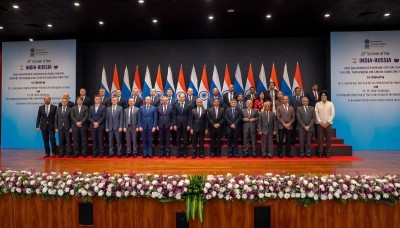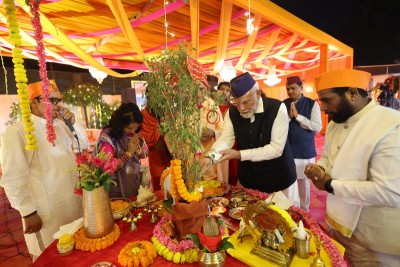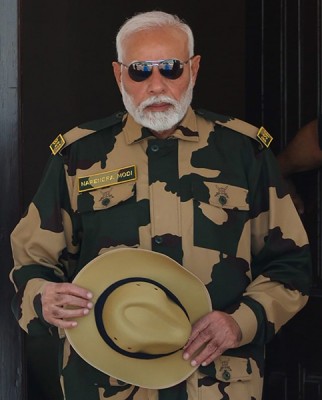 Bangladesh Islamization
Bangladesh Islamization
The Islamization of Bangladesh by General Ziaur Rahman
The creation of Bangladesh delegitimized the “two nation theory,” and soon after its emergence, new country Bangladesh adopted the four-pronged state ideology of nationalism, democracy, socialism and secularism.
The Awami League, which led the struggle for independence, grew out of the Bangla language movement, and was based on Bengali nationalism, not religion. It is, however, important to remember that a dominant Muslim element has always been present. So not long after the emergence of the nation-state, Islam re-emerged as an important factor in the country, both socially and politically.
The importance of Islam grew as the Awami League fell out with the country’s powerful military, which began to use religion as a counterweight to the League’s secular, vaguely socialist policies (many hard-line socialists, however, were opposed to the idea of a separate Bengali state in Bangladesh, which they branded as ‘bourgeois nationalism’).
After assassination of Sheikh Mujibur Rahman by a military coup d’état in August 1975 , and soon after coming to power in November 1975 General Ziaur Rahman replaced the outwardly secular “Bengali nationalism” with “Bangladeshi nationalism,” embracing Islam-oriented state ideology.
General Zia’s government (1975–81) withdrew the ban imposed on all Islam-oriented political parties by the Mujib government for their active collaboration with the Pakistani occupation forces in 1971.
Zia and his successors promoted Islam and Islamic parties, including the Jamaat and Muslim League, for the sake of legitimacy and for containing the most organized Awami League. The late Bangladeshi scholar, Muhammad Ghulam Kabir, argued that Maj. Gen. Zia-ur-Rahman, who seized power in the mid-1970s, “successfully changed the image of Bangladesh from a liberal Muslim country to an Islamic country.”
Since Bangladesh is the third-largest Muslim country in the world (after Indonesia and Pakistan), it is only natural to assume that Islam plays an important role in molding its politics and culture. Around 90 percent of the population is Muslim—most importantly, representing one of the poorest, least literate and most backward sections of the world population.And Zia grasped quite well—that the country was least prepared for socialism and secularism.
General Zia began a systemic policy of promoting the Islamic character of the polity, seizing on the Awami League’s confusion about how to implement socialism and secularism in Muslim majority Bangladesh, where most of the population were both religious and in favor of private property.
From the rapid success of President Zia in popularizing his ideals, programs and most importantly, his regime, among the bulk of Bangladeshis, it appears that political Islam fetched him rich dividends.
In 1977, Zia dropped secularism as one of the four cornerstones of Bangladesh’s Constitution (the other three were democracy, nationalism, and socialism, and made the recitation of verses from the Holy Koran a regular practice at meetings of his newly-formed political organisation, the BNP, which became the second biggest party in the country after the Awami League.
The Jamaat had supported Pakistan against the Bengali nationalists during the liberation war, and most of its leaders had fled to (West) Pakistan after 1971. Under Zia, they returned and brought with them new fundamentalist ideas.
In May 1981, Zia died in an abortive military takeover. In March 1982, Lt.Gen. Hossain Muhammad Ershad (1982-90), the army chief, toppled the successive, elected government. In 1988, Ershad made Islam the state religion of Bangladesh, thus institutionalizing the new brand of Islam-oriented nationalism introduced by Zia. Ershad also changed the weekly holiday from Sunday to Friday, and revived the Jamaat to counter secular opposition. It was under Ershad that Islam became a political factor to be reckoned with.
The post-1975 regimes of both Zia and Gen. Ershad were mainly interested in fighting against secularism, socialism and the Indo-Soviet influence in foreign policy.
These subsequent governments gradually leaned toward the oil-rich Muslim countries of the Middle East and the West for the sake of sustained growth and legitimacy. Significantly, the Saudi recognition of Bangladesh came only after the assassination and overthrow of Sheikh Mujib.
Meanwhile, Bangladesh’s transformation into a quasiIslamic state by discarding socialism and secularism went unhindered because the West, especially the United States, preferred pro-Western Islamists to pro-Communist social democrats during the peak of the Cold War in the 1980s.
Meanwhile, President (General) Zia amended the constitution, replacing socialism and secularism with “social justice” and “absolute faith in God almighty,” respectively. He also had “In the name of Allah, the Beneficent, the Merciful” (in Arabic) inserted at the beginning of the constitution.
Khaleda Zia followed Zia’s policy of Islamization and stressed Islamic symbolism. Mainstream secular and non-secular parties regardless of their ideologies and programs equally use Islamic idioms and phrases.
However it must be noted that Zia and Ershad were mainly opportunists and represented Islam in an overly liberal and accommodative manner to the masses, unrealistically and narrowly. Even though, generally this group sympathizes towards Islam but they generally use Islam as a means to further their political interest. Whenever Islam becomes not suitable for the moment, they merely abandon it.
Support Our Journalism
We cannot do without you.. your contribution supports unbiased journalism
IBNS is not driven by any ism- not wokeism, not racism, not skewed secularism, not hyper right-wing or left liberal ideals, nor by any hardline religious beliefs or hyper nationalism. We want to serve you good old objective news, as they are. We do not judge or preach. We let people decide for themselves. We only try to present factual and well-sourced news.







